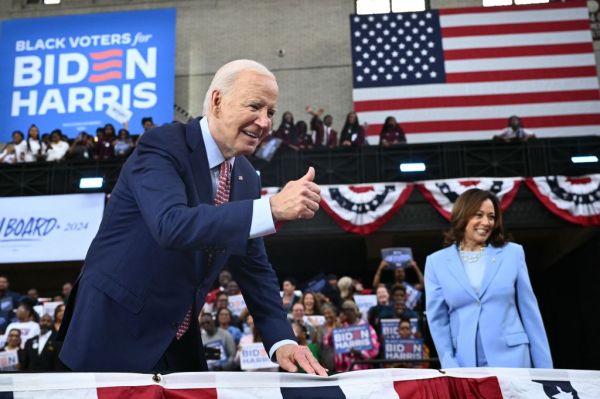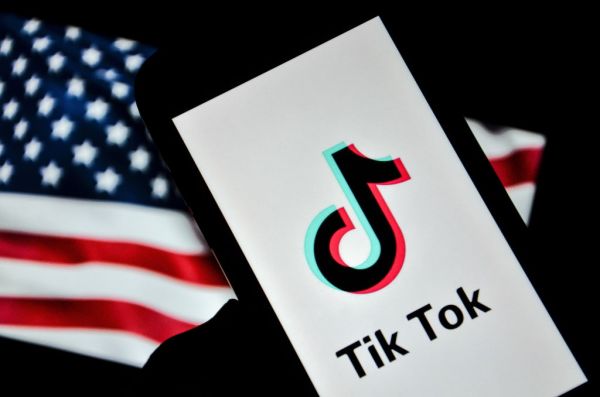Hey,
Let’s start with something different. Imagine a stranger with a scary, gravelly voice sidled up to you at a McDonald’s and started obsessively peppering you with questions—so obsessively he didn’t even wait for you to answer. Here’s what he says to you:
“Am I a bad person?
Tell me. Am I?
I’m single minded.
I’m deceptive.
I’m obsessive.
I’m selfish.
Does that make me a bad person? Am I a bad person? Am I?
I have no empathy.
I don’t respect you.
I’m never satisfied.
I have an obsession with power.
I’m irrational.
I have zero remorse.
I have no sense of compassion.
I’m delusional. I’m maniacal.
You think I’m a bad person?
Tell me. Tell me. Tell me. Tell me. Am I?
I think I’m better than everyone else.
I want to take what’s yours and never give it back.
What’s mine is mine and what’s yours is mine.
Am I a bad person?
Tell me. Am I?
Does that make me a bad person?”
Now, if this person was all up in your grill, you might not answer honestly until after he left the scene, probably having walked away with your kids’ Happy Meals. But I think your answer would be, “Yes, yes, you are a bad person.”
Or you might just think they’re a very weird or otherwise unwell person.
If you didn’t know already, this is a transcript of a new Nike ad voiced by Willem Dafoe using pretty much the same voice he uses to play the Green Goblin in the Spider-Man movies—and with much of the same energy.
Now, this all seems a bit more sinister when you just read the text without the benefit of the video—a montage of athletes, some very famous like LeBron James, Cristiano Ronaldo, and Serena Williams. It’s part of Nike’s larger “Winning Isn’t For Everyone” campaign. And in fairness, many of the other ads in the series are perfectly fine, even uplifting.
But this ad is gross.
I’m not a huge sports guy, as I think everyone knows. But I understand that “winners” (i.e. historically great athletes) often have something of a killer instinct. They push themselves, they want to be the best, they want to win—“winning isn’t everything, it’s the only thing” and all that.
I don’t have a lot of examples of great sportsmanship at my fingertips. But 30 seconds of Googling will reveal dozens of stories of heroic sportsmanship, grace, and decency. It’s one of the best internet rabbit holes you can go down.
But you don’t have to be a sports history maven to see that in this ad, what is supposed to be a celebration of excellence swamps the levee into a sea of dickishness. The biggest incongruity in the ad is that anyone with the self-awareness to realize, never mind, boast that he lacks compassion, has zero remorse, no respect for others, is incapable of empathy, and is obsessed with power, would need to manically query other people about whether in fact he’s a bad person.
Try to come up with a definition of a good person that excludes such qualities.
Do the Madison Avenue geniuses who came up with this think Ted Williams was a sucker to enlist in World War II at the height of his career? Do they think he should have opted to play baseball for the Navy team instead of what he did—become a naval aviator? Should Dan Devine never had let Rudy Reuttiger play? One of the nicest guys I ever met volunteered as a hugger at the Special Olympics. Should he have just embraced the winners of each contest, and then shouted at the rest, “Hugs are for winners!”?
Rhetorically Speaking
One of the annoying things about cultural commentary in America is that so much of it is like the drunk looking for his lost car keys under the streetlamp solely because the light is better there. In this case, the streetlamp is the narrow band of visible light we call politics.
If you criticize some of the execrable lyrics or messages in hip-hop, two kinds of responses are the norm. You’ll get knowing eye-rolling and “Okay, Boomer” condescension or the issue will be immediately turned into an identity politics squabble. How dare you criticize the authentic voice of blah blah blah. You have no standing to judge yada yada yada. We get a deluge of “you just don’t get it” assertions.. The gist of these arguments: Misogyny, glorification of violence, or ostentatious celebrations of wealth are obviously bad when associated with rich white guys, but you have to understand the cultural antecedents that make such things tolerable or laudable when expressed by rich black guys. On your hackneyed culture war bingo card you’ll cross off the phrase “Speak to truth to power” so often the pencil will pierce the paper.
For a while I’ve wanted to write about how Connie, the deaf character on The Walking Dead, is ridiculous. If there is one disability, short of quadriplegia, that almost guarantees that you’ll get eaten by zombies very early in the apocalypse, it’s got to be deafness. But the obvious reaction would be, “Oh, you’re against inclusion!” Because that’s the only plausible objection to an obvious point. I have no problem with having more disabled characters in pop culture. I think that would be a good thing. But I don’t think TV shows about blind fighter pilots or surgeons with Down syndrome make a lot of sense.
But here I am falling into the trap. Even criticizing cultural criticism for being politicized becomes like an Escher drawing of a hand drawing a hand: The critiques of the critiques are political too.
My actual point is that no one cares about judging cultural products according to old-fashioned notions of right and wrong if they don’t fit into conventional political categories. In Suicide of the West, I write a lot about how pop culture is suffused with evil characters that the audience is seduced into cheering for. Breaking Bad’s Walter White is an evil man, and any jury in the country would quickly find a real-world version of him guilty of murder and other crimes. But, as my daughter recently informed me, many of her male friends consider White a cultural hero. Don’t get me wrong, I loved Breaking Bad. I also loved The Wire, but Omar Little was a murderer and a criminal, and yet we’re all expected to root for him, too.
One of these days, I’d love to write a piece on why Penny in The Big Bang Theory is not a very good person and that Leonard Hofstadter was a fool to marry her. She laughs uproariously at an old man who falls down, hides her wedding ring to seduce clients into buying medicine that may not even work, thinks nothing of her long history of cheating on boyfriends, and casually admits she doesn’t leave a note when she damages other people’s cars. But even the idea of taking the moral messages of a popular sitcom seriously, never mind criticizing a popular character, seems like an exercise in crankery and prudishness. Never mind that more people watch The Big Bang Theory reruns than cable news.
That’s a more important point than you think it is. The cultural transmission of values doesn’t primarily happen on cable news shout shows, it happens overwhelmingly in sitcoms, movies, sports, music, and stupid TikTok videos. For instance, I’ve written a lot about how sitcoms are far more pro-life than people realize. When a character gets pregnant—Rachel in Friends, Bernadette in The Big Bang Theory, Murphy Brown in, uh, Murphy Brown—there’s often, but not always, some pro forma chatter about the woman’s decision. But she invariably decides to keep the baby and immediately starts talking about the early first trimester fetus as a baby. In The Big Bang Theory when they hear the fetus’s heartbeat, Raj exclaims, “You guys made a person!” Abortion rights supporters have their argument that the important part is the decision, not the personhood, but that’s not the message.
But forget hot-button cultural issues like abortion, because again I’m falling into the very trap I’m lamenting. There’s a raging debate among political elites about childlessness these days. What do you think has a bigger impact on how normal people think about family life: an op-ed in The New York Times or a half-century of TV shows about family life? Prosecutors often complain that the boom in true crime and CSI TV shows has convinced the national jury pool to think they understand how forensic science is supposed to work.
Prior to the TV age, cultural criticism made a lot of room to engage literature and entertainment on nonpolitical, and certainly nonpartisan, grounds. Today, to take the idea that such fare should concern itself with the kinds of character formation—or deformation—it encourages is to declare yourself a kind of crank. But when historians look back on our culture, they will pay a lot more attention to that stuff, and much less to the ideological argle-bargle that defines cultural debates today. (Dominic Sandbrook notes in his book White Heat: A History of Britain in the Swinging Sixties that the Beatles’ first album, Please Please Me, was in the top 10 for about 43 weeks, but the soundtrack to The Sound of Music was No. 1 for 69 weeks.)
One of the things I loved about the late Paul Cantor was that he was still able to mine popular culture for nuggets of cultural and political significance that had little to nothing to do with contemporary partisan squabbles. Today the herd of independent minds looks at popular culture and mines it for partisan political points. Everything else is deemed negligible dross. In Harold Rosenberg’s legendary essay, “The Herd of Independent Minds”—from whence we get the phrase—you can see how far we’ve strayed from this kind of criticism as well as a kind of prophecy about what the age of mass media would produce. I don’t bother with most cultural criticism these days because it’s kind of like environmental reporting. Every environmental story has to be made into a story about climate change, and nearly every piece about “controversial” art is like a game of Mad Libs with cliches about gender identity and “late capitalism” crammed into it.
Which brings me back to that wretched Nike ad. I could write a thousand words with my eyes closed on how Dafoe sounds like he’s channeling Trumpian or New Right values. Lord knows I’ve written tens of thousands of words making something like that argument in the past, and I’m hardly alone. But that’s sort of the point. Because the ad doesn’t have a political valence, it’s largely ignored. Nonpolitical celebrations of horrible values are deemed ignorable today.
To the extent anyone thinks about rhetoric today, it’s a stand-in for a very slim slice of political speech, and even then we tend to view it contemptuously: “Oh, that’s just rhetoric.” But rhetoric matters. Rhetoric is the story we tell ourselves about ourselves. My favorite definition comes from the literary critic Wayne Booth, who said rhetoric is “the art of probing what men believe they ought to believe.”
If your kid’s high school basketball or soccer coach told your child that he or she should have nothing but contempt for other players or teammates; that they should look scornfully at compassion, empathy, and remorse; that they should consider themselves better than everyone else, you would, I hope, be outraged. That is not what our kids—or anybody else—ought to believe. But when a multibillion-dollar corporation beams that straight at your kids, just to sell sneakers, we mostly shrug. Because in our culture today, anything that doesn’t have a political point is shrug-worthy.








Please note that we at The Dispatch hold ourselves, our work, and our commenters to a higher standard than other places on the internet. We welcome comments that foster genuine debate or discussion—including comments critical of us or our work—but responses that include ad hominem attacks on fellow Dispatch members or are intended to stoke fear and anger may be moderated.
With your membership, you only have the ability to comment on The Morning Dispatch articles. Consider upgrading to join the conversation everywhere.